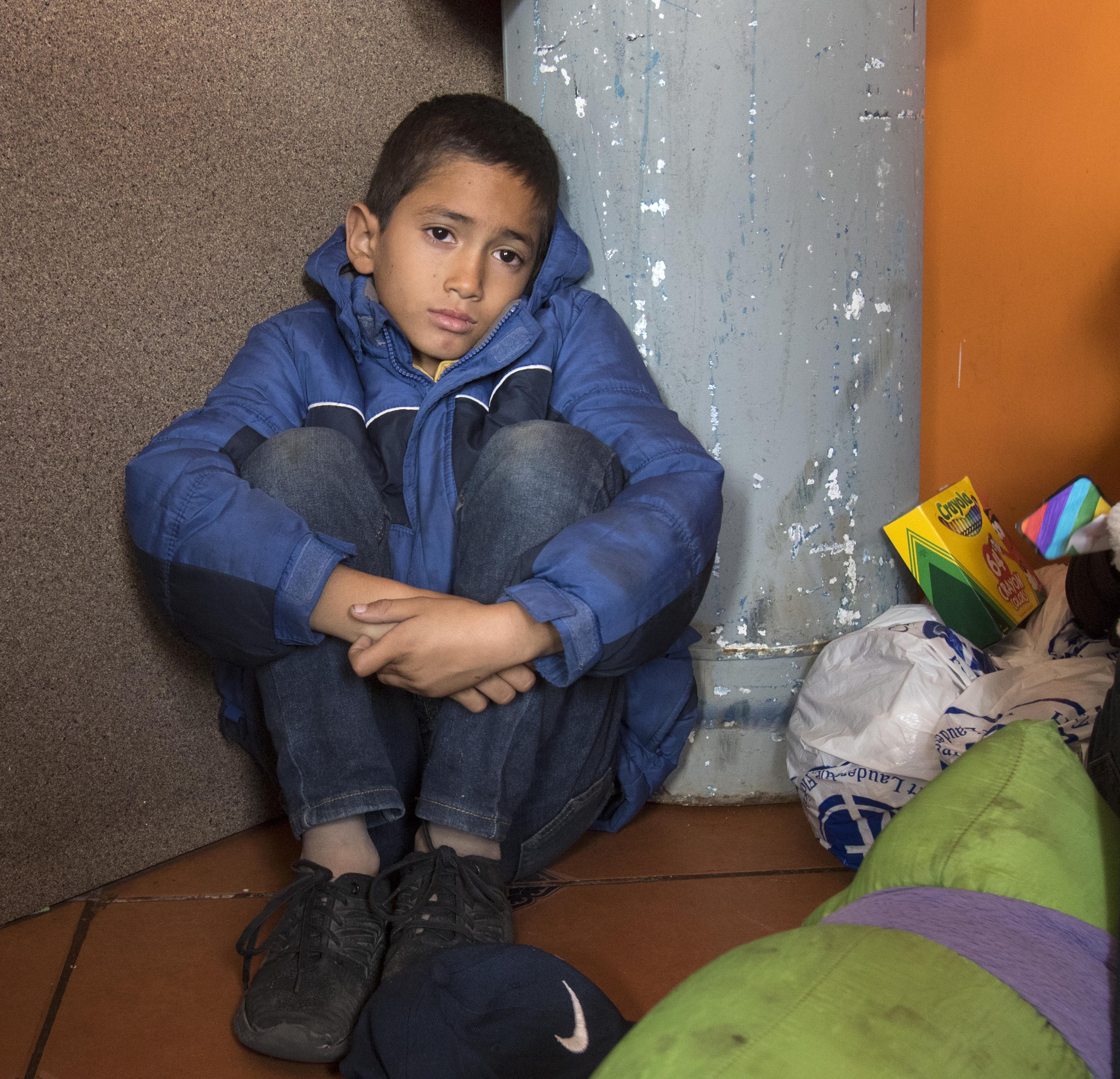Photo credit: Thomas Franklin
It’s tough to practice mindfulness in tumultuous times.
But it helps if the moment is inviting and needed.
I don’t mean only meditation, yoga, deep breathing and other solitary pursuits. I’m talking about a mindfulness that for me represents a more meaningful and fulfilling form of being in the moment with others. That can start with being in contact with the suffering around us.
Over the years I had donated to charities fighting for refugees. I wrote op-eds offering solutions. I walked side-by-side with my wife at The Women’s March in DC. Yet, I sensed I was still coming up short and was searching for a more tangible way to help victims of the political climate.
Like many people, I felt increasingly exasperated by news reports of immigrants and asylum seekers being locked up and separated from their children. While philanthropy, essays and protests are fine things I urge anyone to try, I wanted to be more genuinely involved.
But what to do when one is neither doctor, lawyer, Spanish speaker, or activist? I had neither the skill-set nor time for any of those things.
That’s when my colleague Sujin and I stumbled upon Border Angels.
So during a family vacation last week in San Diego, I ventured off to participate in what this humanitarian, non-partisan, faith-based organization bills as a Caravan of Love. Together with a diverse team of volunteers, from college students — including second generation Mexican Americans — to Baby Boomers, we drove to Tijuana for a day to provide basic needs to immigrants and asylum seekers at the border.
As a kid I had frequently visited Mexico and even lived there for a year, however, I hadn’t been back in several decades. I found a very different country from the one I remember. that preceded border walls and drug cartels.
The trip got off to an inauspicious start. Just as we were receiving instructions from organizers, an agitator startled us with a verbal tirade, reflecting how too many Americans have lapsed into demonizing our neighbors to the south.
Some in the group shed tears of frustration. Others, including me, got into an ill-advised shouting match. But we carried on and remained intent on the larger mission.
In minutes we sailed across the border faster than most New Yorkers cross the bridge to the suburbs. No checkpoints, no passports, no questions, no insurance. Just as suddenly you glance at your phone and see your US cell service has been cut off.
We gathered supplies and drove to shanty towns housing stateless people. I felt remarkably unselfconscious and strangely safe, totally in the zone, very in the moment.
We worked together, hand in hand, collectively turning our focus and attention to these unfortunate souls in need.
Unforgettable moments are seared into my mind.
Giving a hug to a Mexican undocumented deportee who had spent the majority of his life in the US. Slipping a $20 to a single mother from Central America with three exhausted young kids in tow. Listening to a woman who escaped violence and persecution in her native Honduras and journeyed by foot to this Tijuana warehouse lined with tents on a concrete slab. Watching immigrants sort through the hygiene supplies and used clothes we delivered, hoping to keep them and their children warm.
These immigrants huddled in their confined space, afraid to face possibly hostile strangers outside, missing the sunlight, lacking basic needs we take for granted. Stray dogs on the street enjoyed more quality of life, I thought.
Yes, there is a global refugee crisis. They’re not the only ones. But here we’re talking about this situation festering within literally a stone’s throw of the most prosperous country in history.
The wall seemed omnipresent, its length extending into the Pacific, its height making it visible from far inside Tijuana.
The abject poverty – visible from the slow-moving crawl of traffic back to the American side –was more conspicuous than what I’ve seen in in developing countries like Cambodia, Colombia and Tanzania.

Despite little or no chance that they will be granted asylum in the US, these refugees soldier on, thanking us for our modest help, frequently smiling, finding pleasure in the simplest things.
One 9-year-old girl, who had no school to attend and didn’t even know her last name, asked to braid the hair of one of the woman volunteers. We watched her light up with enthusiasm — like the child next to her did when presented with a used teddy bear.
The highlight of the day for me was when we reached a soup kitchen for refugees and decided to restock their meager shelves. I headed off with another volunteer, a veteran of multiple trips, to a local supermarket that was in surprisingly good shape. We filled our grocery cart not just with the potatoes and pasta they asked for but with fresh fruit and vegetables, olive oil and chocolates, to try to give these unlucky and courageous people a small taste of a better life.
Such are the acts of compassion that meet small immediate needs but certainly constitute no fix. I felt a sense of personal responsibility and forged a brief bond that leaves the giver and receiver both a little bit better off.
The Mayo Clinic cites much research on how volunteering benefits both physical and mental health, decreasing inter alia the risk of depression, stress reduction and increases in the chances of longevity.
So the next time you wallow in self-pity, feel overwhelmed at work, stress that you haven’t worked out for a while, as we all sometimes do, be mindful of life across the wall.


